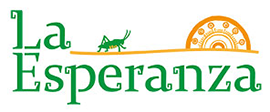
Beyond High School: The Path to Success
Javier Ortiz mentors high school students in Sussex County.
By Mauricio Salinas, La Colectiva Fellow
As a Fellow through La Colectiva de Delaware and La Esperanza and an educator, I am gathering information on how to support our Hispanic students and families in their quest for higher education and finding a path to a college degree.
I met Javier Ortiz, a volunteer and mentor for immigrant high schoolers, mostly Sussex County seniors and college students. He has mentored students from Cape Henlopen, Delmar, Indian River, Seaford, Sussex Central, Sussex Technical and Delaware Technical Community College for seven years.
He concentrates on students with the most pressing needs, such as undocumented, asylee, DACA and special immigrant juveniles. Last school year, Ortiz met one on one with 112 graduating seniors from seven Sussex County high schools, most of whom enrolled at Del Tech in the fall.
This school year, I attended his session at Sussex Central High School in the Indian River school district. His informational sessions are 45 minutes long and cover basic but crucial information about options for higher education; financial aid based on their migratory status; applications and preparing for the fall semester; scholarship options; completing applications, including FAFSA; and important dates.
Preparation is key
Ortiz stresses that students must understand the importance of preparing for college and exploring their options for higher education and training. He encourages students to apply for financial support and avoid delays that might cost them aid. Ortiz says preparation is key. He presents options: graduate from high school and work; two-year colleges; apprenticeships; four-year colleges; trade schools; and military options, such as active duty or the National Guard.
The students learn about financial aid options based on their migratory status; who is eligible for FAFSA; and the Student Excellence Equals Degree scholarship fund. Mr. Ortiz explains that financial aid is available for Delaware high school graduates if they meet GPA and residency requirements, regardless of citizenship status. For SEED, undocumented students must have attended a Delaware high school for at least two years, and SEED will fund the third year of a four-year program at DTCC or University of Delaware.
Ortiz makes a distinction between the two types of Social Security cards and the ITIN card. He emphasizes that students applying to college need to use their names as they appear on their cards or birth certificates and/or passports. He provides a timeline on how to complete enrollment and scholarship applications. Many times, he accompanies students to provide encouragement and ensure the process is complete.
Ortiz clarifies that attending DTCC is not completely free, that the SEED scholarship only pays for tuition, and that students are responsible for enrollment fees, books, class materials and transportation. He compares the Pell Grant (FAFSA) and SEED Scholarship.
Only U.S. citizens, permanent residents and asylees are eligible for the Pell Grant, which is based on financial need and can cover tuition, fees and books. It is applied for first tuition and will pay for retaking a course. Students must complete at least one course for the semester to avoid having to repay the money. The grant can be used to attend universities or other institutions, such as cosmetology training.
The SEED scholarship is for undocumented students who have attended and graduated from a Delaware high school. It is based on merit and pays only tuition. SEED will pay for a course once, and it can be used at DTCC for an associate degree, diploma, credit certificate, bachelor’s degree, or workforce training program. It can be used at the UD Associate of Arts Program. If a student loses the funding, it is gone.
English proficiency
Because many students are English as Second Language students, Ortiz says it’s imperative they know the importance of English for their college learning. He recommends that anyone with six or fewer years of schooling in the United States take an English proficiency test to measure their reading comprehension and writing competency. He mentions other options, such as DTCC Continuing Education and ESL Certificate Program.
Ortiz tells students that education after high school includes more than college. He suggests students learn about Sussex Technical adult education apprentice programs. Students can choose from auto technology, carpentry, plumbing, restaurant cook, welding, electronic technician, heating, ventilation, air conditioning and refrigeration. These programs do not inquire about immigration status and are offered during evenings. His workshops provide Esperanza (hope) to students to realize their educational dreams.
Undocumented students who graduate from any Sussex County high school and attended for at least three years; are enrolled in a study program offered by Georgetown Owens Campus; accumulate a minimum 2.00 GPA with good academic standing; and complete the application by May 15 can apply for three other scholarships: Neila D. Block Memorial Endowed Scholarship, Marvin Karl Feldman Foundation Scholarship, and Future Citizens Scholarship.
